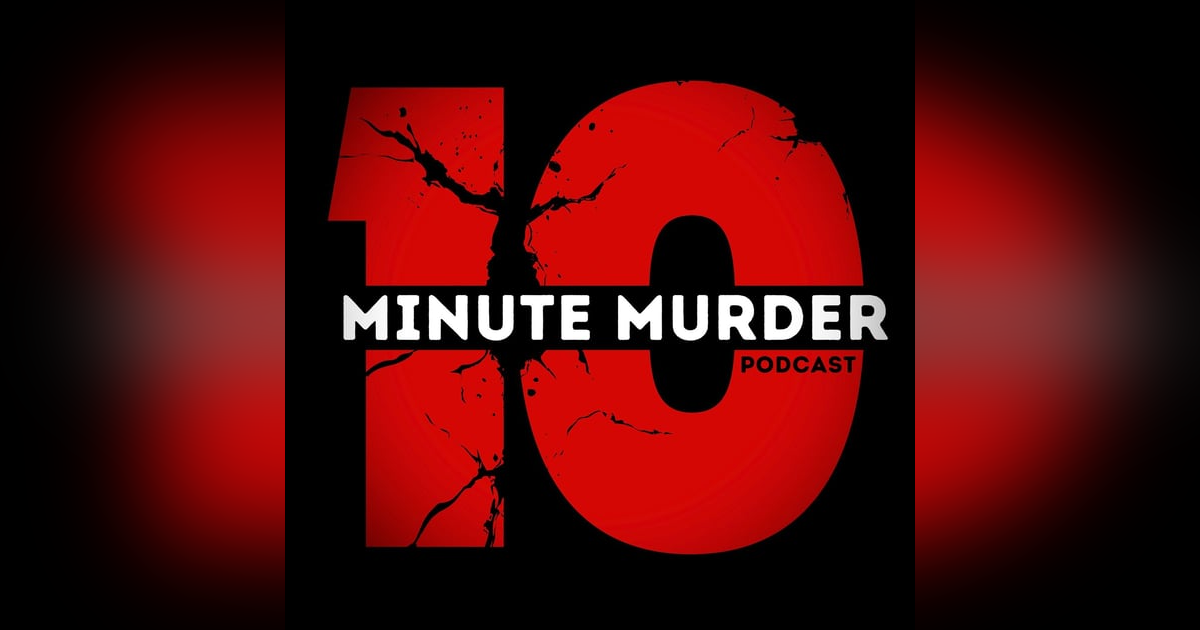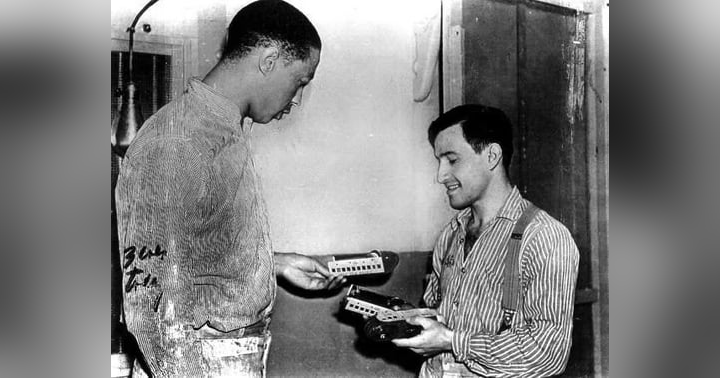Duty To Warn: The Case Every Therapist Learns About

What We Say Behind Closed Doors
At some point, a lot of us end up sitting across from a therapist. Usually it’s to unpack something heavy from our past—trauma, abuse, neglect, take your pick. We talk, they listen, maybe nod at just the right time to make us feel heard. Then they offer something helpful. A little clarity, maybe a plan.
There’s a kind of unspoken agreement built into that setup. What’s said in the room, stays in the room. You open up, piece by piece, because you trust it’s not going anywhere you didn’t send it.
But mental health isn’t one-size-fits-all. Some people catch the flu and barely notice it. For others, it’s deadly. Mental illness works the same way. What helps one person might do nothing for someone else. And when it spirals, it doesn’t always just affect the person experiencing it.
When Mental Health Becomes Everyone’s Problem
Unlike physical illness, we don’t usually think about mental health issues as something that could affect the people around them. There’s no contagious element. You can sit next to someone with depression and you’re not walking away with it. That’s part of the disconnect. The other part is that so much of it happens quietly. Internally. You don’t always see it unless you’re trained to look, or unless the person opens up in therapy.
But therapy isn’t just about venting into a void. It’s about trust. And confidentiality. That’s the deal. What you say in there stays in there. Unless—maybe—it doesn’t.
Because what happens when someone says something that crosses a line?
What if a person tells their therapist they’re thinking about hurting someone? Not just hypothetically. Not just in a dark-and-stormy-journal-entry kind of way. What if they have a name, a plan, and a calm tone when they say it?
Now the therapist is stuck. On one hand, there’s the oath. Patient first. Total confidentiality. On the other, there’s a very real human being who might be in danger.
So what takes priority? The safety of the public, or the privacy of the patient?
Depending on who you ask, you’ll probably get a strong opinion. There are people who believe therapists should step in immediately if there’s a threat. And there are people who believe that even hinting at breaking that trust undermines everything therapy is supposed to be.
Like most messy, uncomfortable questions in this country, it took a tragedy for the courts to get involved. And that brings us to California, in 1967, where a young woman’s life—and death—would push the legal system to draw a line that had never existed before.
A Dance Class, a Kiss, and a Dangerous Misunderstanding
Today’s case takes us to California, to the campus of UC Berkeley in the late 1960s. That’s where Prosenjit Poddar, a student from Bengal, had just arrived to begin his studies. He didn’t know anyone yet. He was new to the country, new to the culture, and doing what most international students do—trying to find a place to land.
He moved into the International House, a space on campus set up to help students like him feel less isolated. They held weekly events, social mixers, community dinners, even folk dancing classes. And it was in one of those dance classes that Prosenjit met a fellow student named Tatiana Tarasoff.
Tatiana was outgoing, easy to talk to, and friendly. The weekly classes gave them plenty of chances to talk, and over time, a friendship started to build. Prosenjit saw something more in it. Especially after Tatiana gave him a New Year’s Eve kiss.
But Tatiana didn’t mean it that way. It was a holiday moment, part of the night’s celebration, nothing more. When she realized Prosenjit had taken it as something romantic, she tried to let him down gently. She cared about him as a friend, but she wasn’t interested in dating him. She was already seeing someone else.
Prosenjit didn’t take the rejection well. He became fixated on Tatiana, obsessed with why she didn’t return his feelings. He started following her around campus. He skipped classes. His grades tanked. His friends saw the shift and started to worry.
He was withdrawn, unkempt, often seen crying or talking to himself. What had started as a one-sided crush had turned into something far more troubling.
When Therapy Isn’t Enough
By the time Prosenjit was barely speaking to Tatiana, his obsession had taken a darker turn. He began secretly recording their conversations—not to hear her voice again, but to analyze them. He wanted to study her words and find out why she didn’t love him back. It was less about heartbreak and more about control.
His friends noticed something wasn’t right and urged him to seek help. Eventually, he did. Prosenjit started therapy with Dr. Lawrence Moore, a psychologist at UC Berkeley’s Cowell Memorial Hospital. And at first, it seemed like he was getting better. He was showing up to appointments. He was engaged. There was a flicker of hope.
But hope didn’t last long.
A Deadly Confession Behind Closed Doors
That summer, while Tatiana was in Brazil, Prosenjit walked into Dr. Moore’s office looking bright and upbeat. But during that session, he told the doctor something chilling: when Tatiana came back, he was going to kill her.
Dr. Moore immediately recognized the seriousness of what he’d heard. He tried to reason with Prosenjit, but the moment the session ended, he picked up the phone and called campus police. He told them that Prosenjit was experiencing an acute paranoid schizophrenic episode and posed a danger to himself and others.
Police brought him in. But the man they met wasn’t unstable. He was calm. Cooperative. He answered their questions clearly and respectfully. Based on how he presented, they decided not to detain him.
Dr. Moore’s supervisor, Dr. Harvey Powelson, also evaluated Prosenjit and agreed. In his opinion, there was no cause for further action.
When the System Doesn’t Intervene
Dr. Moore wasn’t done. He continued pushing for Prosenjit to be committed, but there was only so much he could do. Without legal support from the university or psychiatric backing, his options were limited.
Eventually, Prosenjit stopped therapy altogether.
Because of doctor-patient confidentiality, Dr. Moore wasn’t legally allowed to warn Tatiana or her family. If he did, he risked losing his license. There were no laws in place at the time to protect someone in Tatiana’s position. And so, no one warned her.
By the time Tatiana returned from Brazil, Prosenjit had moved in with her brother. He was no longer in treatment. Police had been told not to intervene. And Tatiana had no idea that Prosenjit had told anyone he planned to kill her.
The Murder of Tatiana Tarasoff
In late October, Prosenjit showed up at Tatiana’s house. She wasn’t home, but her mother was. Her mom answered the door and told him to leave. He did.
Later that evening, he came back.
This time, Tatiana answered. Prosenjit asked to talk. Tatiana stepped outside, but something must have felt wrong. She started to scream. That’s when he pulled out a pellet gun and a butcher knife.
Tatiana ran down the street, screaming. Prosenjit followed. He shot her, caught up to her, and stabbed her repeatedly.
Then he calmly called the police, confessed to the murder, and asked to be arrested.
A Family Left in the Dark—and Furious
Tatiana’s family was devastated. And they were furious.
They believed, rightfully so, that if they had been warned—even once—they would have never let her leave the house that night. That she might have had a chance to protect herself. That someone could have intervened. They filed a lawsuit against Dr. Moore, Dr. Powelson, the campus police, and the University of California. Their claim was simple: someone should have told them.
They argued that since Prosenjit had disclosed a specific plan to murder Tatiana, and since Dr. Moore had taken that threat seriously enough to call the police, there was a clear obligation to notify the people in danger.
But the court disagreed.
The First Court Decision: Confidentiality Comes First
The case was thrown out. The court ruled that Dr. Moore had a greater duty to protect his patient’s confidentiality than he did to protect Tatiana’s safety. The legal system, at that point, offered no gray area.
Tatiana’s family didn’t stop there.
They appealed and took the case to the California State Supreme Court. This time, the court acknowledged that no laws had been broken—but they agreed the case was worth reviewing.
Initially, the court ruled that mental health professionals should have a legal obligation to warn anyone their patients might pose a danger to. But the psychiatric community pushed back hard. They argued that any breach of confidentiality would destroy trust in the therapeutic relationship.
The backlash was strong enough that the court went back and reviewed the ruling again.
“The Protective Privilege Ends Where the Public Peril Begins”
After the second review, the court came to a new conclusion: mental health professionals have a dual obligation. One to their patients. And one to people their patients might reasonably harm.
Justice Mathew Tobriner wrote the words that would go on to define this ruling:
“The protective privilege ends where the public peril begins.”
The court likened mental illness to physical disease. When someone is exposed to a dangerous, contagious illness, doctors are required to notify others who might be at risk. Tatiana’s case, they argued, should have been treated the same way.
The Legal Legacy of Tarasoff v. Regents
Tatiana’s civil case was eventually settled out of court. Prosenjit Poddar was found guilty of second-degree murder and sentenced to five years. He served four.
Later, his conviction was overturned. He was released on the condition that he return to India.
But the legal legacy he left behind changed how mental health and public safety are handled in the United States. Today, the “duty to warn” exists because of what happened to Tatiana Tarasoff.
And the question that still lingers is this: why did it take a murder for us to figure that out?
____
What happened to Tatiana Tarasoff should never have happened. She didn’t know she was in danger because the system decided she didn’t need to. And by the time anyone questioned that decision, it was already too late.
Her case changed the law. It forced the courts to draw a line between protecting someone’s privacy and protecting someone’s life. But it came at the highest cost.
Thanks for listening.




